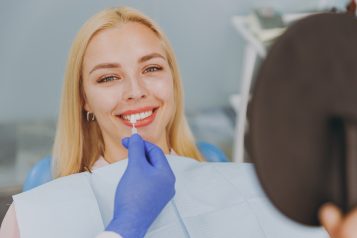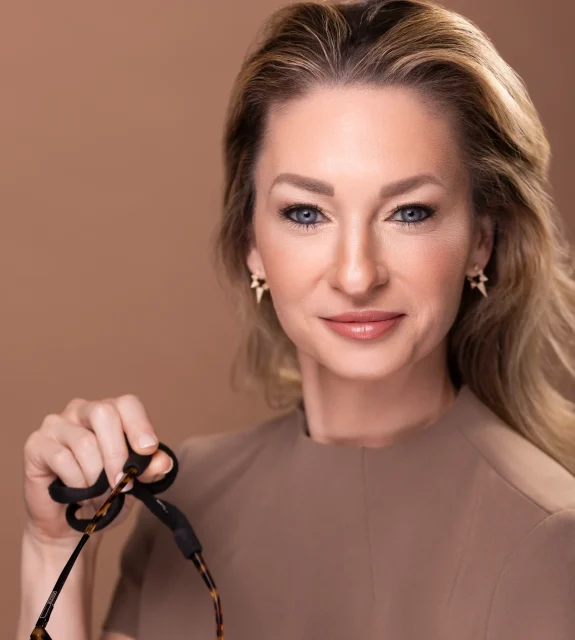 Photo Credit: Shutterstock
Photo Credit: Shutterstock
Taking care of yourself during the summer is essential for the health and beauty of your skin. While you’re out and about enjoying the summer sun after a long winter, remember that the sun’s UV rays can be harmful, leading to premature signs of aging, burns, or even skin cancer. Having five or more sunburns in your lifetime doubles your risk for the deadliest form of skin cancer - melanoma. The good news is that skin cancer is highly preventable. By taking proactive steps to protect your skin, you can reduce your risk of skin cancer and keep your skin healthy and radiant all summer long (and your baby’s, too)!
The Science of Suncare
The most effective way to protect our skin from the sun is by using SPF every day. SPF, short for “sun protection factor,” is a scientific measure of how long a sunscreen protects you from ultraviolet (UV) rays. SPF measures how long you can stay in the sun without burning. For example, if your moisturizer is SPF 30, it takes 30 times longer to burn your skin with sunscreen than without. It’s also important to look for sunscreens labeled “Broad-Spectrum”, which means they protect against both UVB and UVA rays. UVB rays cause sunburn, while UVA rays cause photoaging such as wrinkles, fine lines, and hyperpigmentation.
There are two types of sunscreens: physical and chemical. A physical sunscreen blocks out the sun’s rays by coating the skin with a layer of minerals like titanium or zinc, while a chemical sunscreen absorbs UV radiation and converts it into heat before releasing it from the skin and should be applied at least 15 minutes before direct sun exposure. Apply sunscreen generously and often to protect your skin from the sun’s harmful rays, no matter what type you choose.
Did you know?
Clouds may block the sun, but they can't block UV rays, so even on cloudy days, wear sunscreen! While UVB can't penetrate glass, UVA can, so even indoors or in the car, you need protection to keep your skin looking plump, even, and youthful.
 Photo Credit: Shutterstock
Photo Credit: Shutterstock
Summer Skincare for Babies and Kids
Research shows that getting just one blistering sunburn as a child or teenager can almost double your chance of developing melanoma as an adult. So, what can parents do to keep their little ones safe from the sun’s harmful rays? To protect babies younger than six months old from the sun, the FDA and the American Academy of Pediatrics (AAP) recommend keeping them out of direct sunlight altogether.
Babies older than six months should use a broad-spectrum mineral sunscreen containing titanium dioxide or zinc oxide as these ingredients are less likely to irritate the baby’s skin. Test sunblock on the inside of your baby’s wrist before applying it to the rest of their body so you can be sure it doesn’t irritate your little one. Sunscreen in stick form is an excellent option for toddlers and younger kids who might rub lotion sunscreen into their eyes. Lastly, reapply sunscreen every two hours or immediately after swimming or sweating, as there is no "waterproof" sunscreen. For babies and children of all ages, it’s critical to wear sun-protective clothing (labeled UPF 50+) and a hat with a wide brim that shades the ears and neck.
Suncare for Mom
One area often overlooked for sun protection is the scalp. The head and neck account for 80% of all skin cancers each year, including exposed areas on the scalp like the hairline and part line. Everyone should be vigilant about protecting their scalp from the sun’s harmful rays and incorporate it into their skincare routine, but this is especially important for people who take certain photosensitizing medications like some high blood pressure prescriptions, St. John’s Wort, and certain antibiotics.
Luckily, there are products available to make scalp care easy, like Supergoop! Poof 100% Mineral Part Powder, which offers sun protection and dry shampoo in one. This is an easy way to streamline your summer beauty routine when you’re trying to get out the door and hit the lake, park, or playground! Remember to throw on a pair of sunglasses too! Sunglasses protect the delicate skin around the eyes, preventing or slowing down those early signs of aging. These include crow’s feet and furrows in the brow where you’d squint to shield your eyes from the sun.
You can also increase your SPF’s anti-aging power with oral and topical antioxidants, like a vitamin C serum. Vitamin C helps fight free radicals and UV radiation damage, which can lead to premature aging. Incorporating a vitamin C serum into your skincare routine lets you keep your skin looking radiant and youthful all summer.
For more information, visit Dr. Mara Weinstein Velez's social media:






















